Movie Review – They Shall Not Grow Old
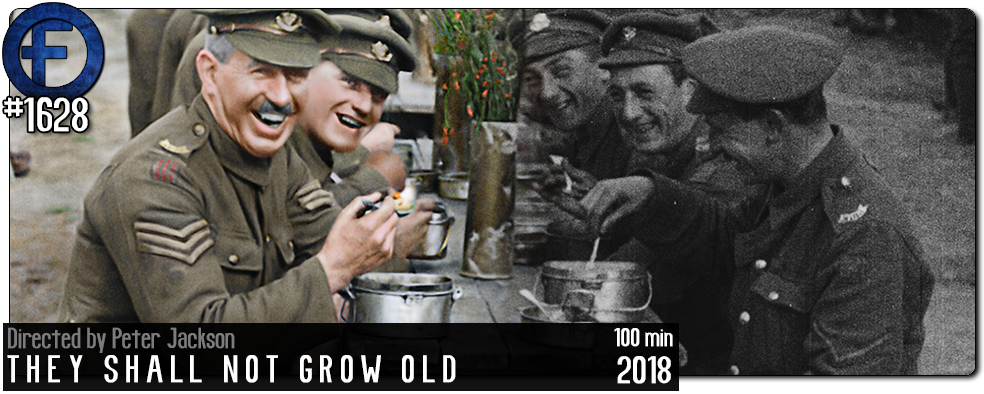
Principal Cast : Various
Synopsis: A stunning glimpse into the life of World War I soldiers using state-of-the-art reconstructive technology and the latest cinematic effects to bring the conflict into the sharpest relief yet.
****
November 11th, 2018 marked the centennial of the conclusion of the Great War, the first global conflict in which multiple nations of the Earth participated. The mark the occasion, New Zealand filmmaker Sir Peter Jackson, armed with WETA Digital’s array of digital technology, set about giving the war a modern update, by taking old film footage and turning it from jittery, flickering black and white imagery into brilliantly coloured, 3-dimensional modernity, peppering the visuals with archival narration by participants as well as a thunderous surround sound mix, putting the viewer into the midst of the world’s most deadly conflict with acuity and presence. To say They Shall Not Grow Old is essential viewing is to understate not just how distant we are as a culture from the first mechanised war, but how generations have simply forgotten the carnage, scale and heroism the young men – nay, teenagers – displayed on the battlefields of the 1914-1918 conflict.
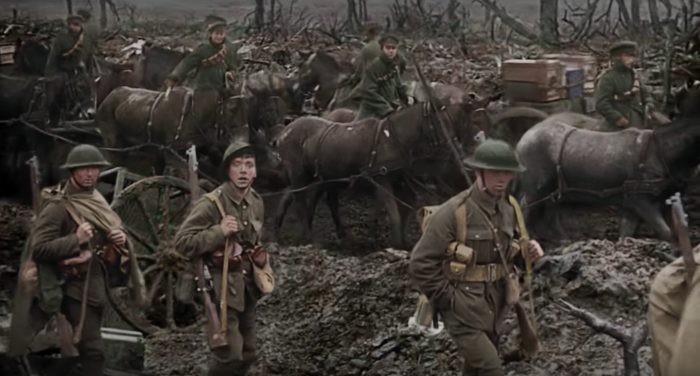
As a documentary, They Shall Not Grow Old features filmed footage taken during the period of the Great War, which lasted for 4 years between 1914 and 1918, when on the 11th November, an armistice was declared and the war concluded. At its end, the Great War – the first truly global conflict – would claim nearly 20 million military and civilian lives across the battlefields of Europe, and usher in an age of humanity where the heroism of war gave way to its futility. The film uses recorded archival dialog from those who took part, from former soldiers and other personnel who saw battle on the front lines and recounted both the horrors of conflict in excruciating detail and the mundane, almost jovial atmosphere that the lads enjoyed for a lot of the period of the war’s duration. In the early 20th Century, the onset of war was seen as a grand adventure, not some horrifying event that would turn the survivors into desolate shadows of humans who witnessed such atrocity as to be almost numb to it. Much of the film utilises early footage from the British perspective, from training and boot camps to the journey from home soil in England across the Channel to the battlefields of France, where horror truly lay.
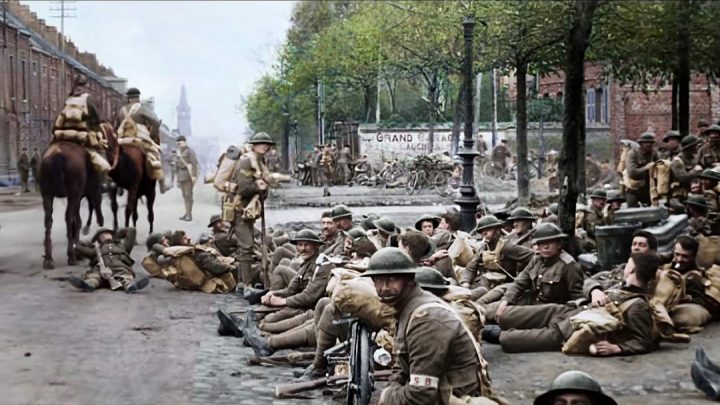
Jackson, and his team of heroic artisans, have taken hours and hours of wartime footage and delivered a technical cinematic marvel. using computer technology, they have re-registered the frame-rates to current standardised 24 fps, giving the old 13 and 15 fps film stock a sense that it was filmed not a century ago but yesterday. Computer coloured and (where available) shown in 3D, the film is a visual astonishment, witnessing a truly breathtaking glimpse at footage we’ve only thought of as historic into a living, breathing modern document of horror. The men walking in formation into battle, the tanks, horses and explosive aspects of the war’s battlefields all appear to be given new oxygen, ghostly apparitions suddenly feeling resurrected by pixels of colour and life. As the film opens in traditional black-and-white footage, you have that feeling of familiar distance between you and the subject, but once Jackson’s film kicks into high gear with resplendent colour and widescreen fervour, you cannot help but feel a kinship with these men on the screen. From the shingles being blasted off rooftops by cannon-fire percussion, to the mud-soaked slime and putrid rancidness of the tumultuous French countryside, there are startling revelations delivered by this ferociously unflinching testimony. Given its subject matter, there are images within the film that are quite confronting – trigger warnings apply, folks – and the lifelike way it seems to us today, rather than the stodgy, stuffy museum-like manner we’re used to seeing it, strikes to the heart of our association with it.
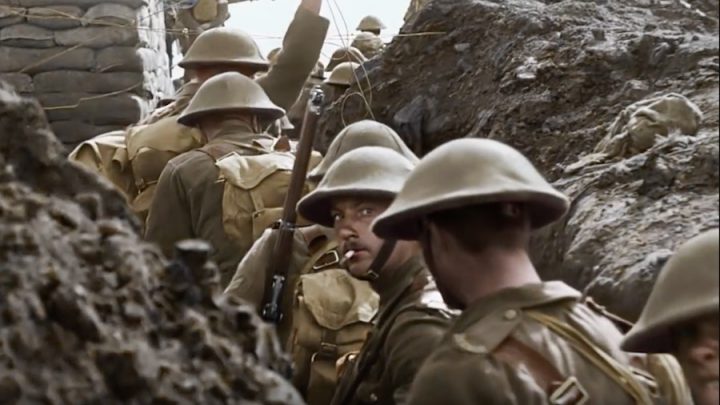
Accompanying the amazing reconstruction completed on the film used within the movie are well over a hundred voices narrating their experiences within the war alongside footage approximating that very anecdote. The archival work to dig out the various stories and related recountings would have been enormous, making the end result only that much more powerful. The voices of soldiers now long since passed on haunts us as does the footage, and the stirring dignity with which they speak of their heroism and unashamed disregard for their own lives brings comparative perspective to the whining manchildren populating our society today. The fact that almost to a man the voices retell of their under-age signing up to serve as a right of passage, unknowing of the slaughter they were walking into, is heartbreaking, and the searing visual journey accompanying the dialogue only serves to highlight just how wasteful war truly is, how it robs us of our futures by killing off out young men.
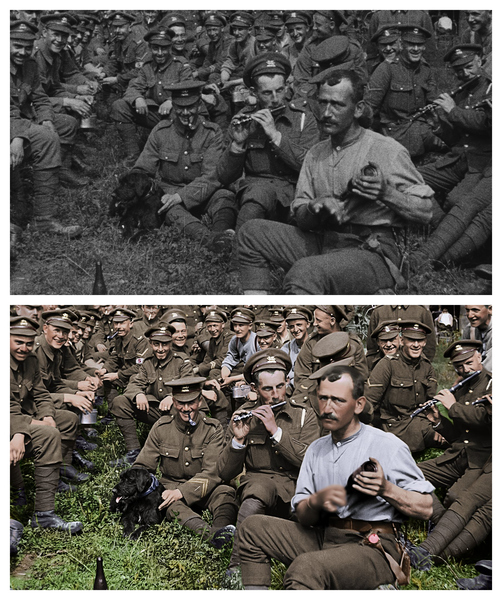
There are very few words that serve to do justice to the work Peter Jackson’s team of artists have wrought on this content. Sobering, at times wrenching with punctuating carnage – the film’s zenith is a harrowing surround-sound journey into the charge across No Man’s Land and the hail of bullets awaiting the British soldiers – They Shall Grow Not Old will force tears from your eyes with every passing moment. It’s a powerful, cathartic piece of art, this movie, taking the audience deeper into a war now slowly passing out of living memory. This, this glorious testament to human heroism, is as close as we can possibly get now to knowing, to understanding, what it must have been like living in the mud, gas and stench of death places like Verdun and the Somme, and how it should remain etched deeply into our psyche as a warning not to let it happen again. At times nonchalantly humorous, at times contrasting human carnage with utter futility against impossible odds, and as remarkable a visual tableau on World War I as has ever been writ, They Shall Not Grow Old is an essential-viewing showcase for those who are unknowing of the Great War, a stark reminder to those who think they know, and an altogether monumental achievement in documentary film-making.

